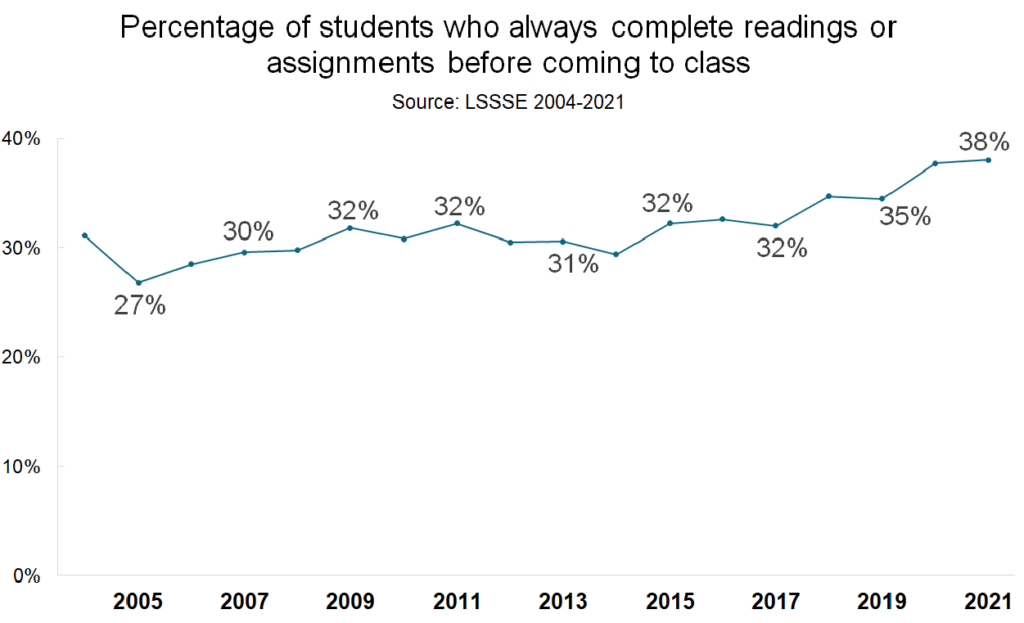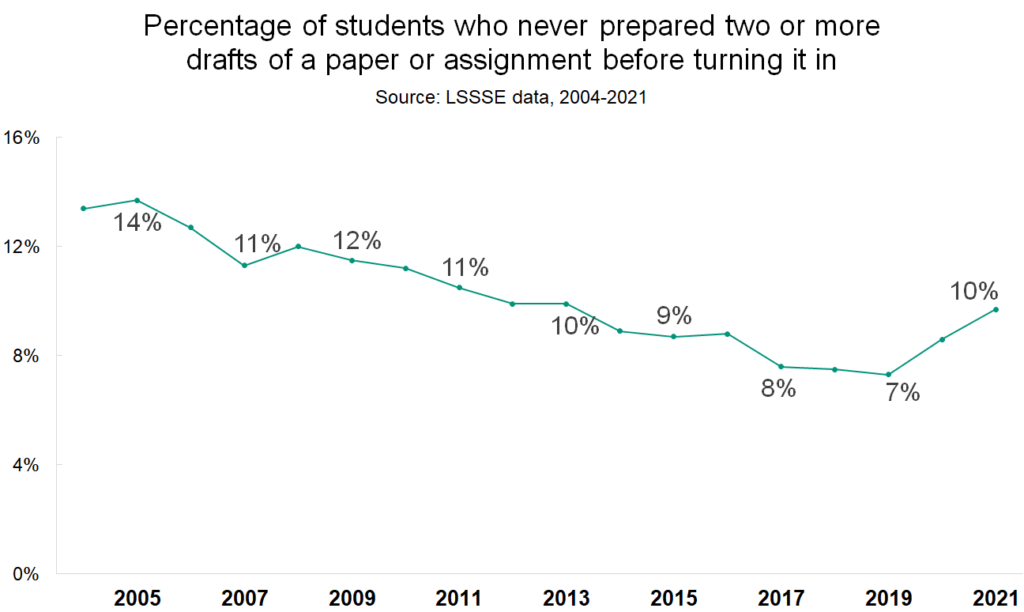The average law student spends a sizeable amount of time reading and otherwise preparing for class each week. But given the stresses and time pressures placed up students, how many of them occasionally skip the required readings? We examined LSSSE data from 2004 to present to look for trends.
LSSSE’s core survey asks about how often students come to class without completing required readings or assignments. In 2021, fully 38% of students said they never came to class unprepared. This is up significantly from the all-time low in 2005 of only 27% who said they always completed required readings and assignments. In fact, there has been a steady upward trend toward meticulous class preparation over the last decade and a half.

A similar attitude toward hard work outside of class time can be seen in the percentage of students who prepare multiple drafts of a paper or assignment before turning it in. In 2005, 14% of student never prepared additional drafts of their coursework. By 2019, that number had dropped to 7%. However, in 2020 and 2021, the number of students who never prepared multiple drafts increased slightly again. It will be interesting to see whether this is a pandemic-fatigue effect or whether students are gradually showing either less interest in re-writing or less available time in which to do so.

Writing can play an important role in developing critical thinking and reasoning skills, which is why it is a central component to a legal education. This is also true of doing assigned reading, which occupies about 18.5 hours of a law student’s week on average, and performing other types of course preparation, which takes another 11.2 hours of effort per week. Since LSSSE started collecting data in 2004, it appears that law students have generally become more engaged with putting in the effort necessary to reap the benefits of a legal education, even when that effort happens at home.
